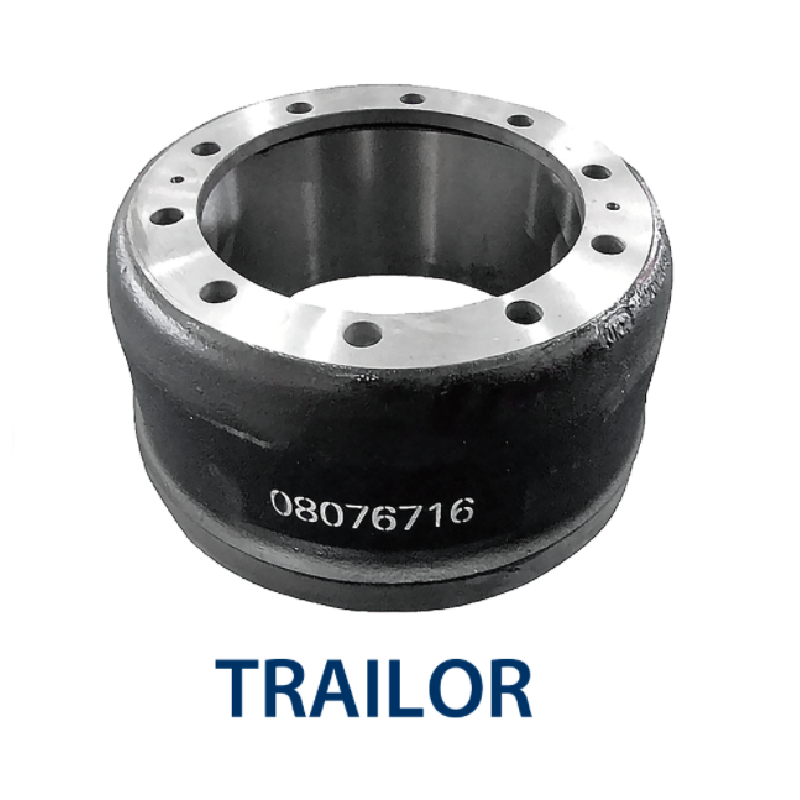Oct . 16, 2024 19:33 Back to list
rear brake drum noise
Understanding Rear Brake Drum Noise Causes and Solutions
When it comes to vehicle maintenance, ignoring brake noises can lead to significant safety hazards and costly repairs. One common issue that drivers may encounter is rear brake drum noise. Understanding the possible causes and solutions for this problem can help ensure a safer and more enjoyable driving experience.
Common Causes of Rear Brake Drum Noise
1. Worn Brake Shoes Over time, the friction material on brake shoes wears down. When the shoes become too thin, they may not make proper contact with the drum, leading to a grinding or squeaking noise. Regular inspection can help identify wear before it becomes a significant issue.
2. Moisture and Rust Brake drums can accumulate moisture, particularly in damp climates, leading to rust formation. Rust can cause a scraping or grinding noise when the brakes are applied. This rust can usually be cleaned off, but if the drums are severely corroded, replacement may be necessary.
3. Dust and Debris Brake dust and road debris can get trapped between the drum and brake shoes, causing unusual noises. Regular cleaning can mitigate this issue. However, if excessive debris builds up, it may indicate that the shoes are improperly installed or worn out.
4. Improper Installation If brake components are not installed correctly, it can lead to misalignment and abnormal noise. It’s crucial to have brakes serviced by qualified technicians to ensure proper installation and functionality.
rear brake drum noise

5. Faulty Wheel Bearings Sometimes, the noise that seems to come from the brakes actually originates from worn or damaged wheel bearings. A thorough inspection is essential to differentiate between brake-related noise and issues with the wheel assembly.
Solutions to Rear Brake Drum Noise
1. Regular Maintenance Regular brake inspections and maintenance are key to preventing noise. Schedule routine checks every few thousand miles or as recommended by your vehicle’s manufacturer.
2. Replace Worn Components If worn brake shoes or damaged drums are identified, they should be replaced promptly. Investing in quality components can reduce the likelihood of noise and improve overall braking performance.
3. Cleaning and Lubrication Keeping the brake system clean and properly lubricating moving parts can enhance efficiency and reduce noise.
4. Professional Assistance If the source of the noise is unclear, it’s advisable to consult with a professional mechanic. They can diagnose the issue accurately and recommend appropriate solutions.
In conclusion, while rear brake drum noise can be annoying and concerning, understanding its causes and solutions can help maintain your vehicle’s braking system. Regular maintenance and prompt attention to issues will not only improve your car's performance but also enhance your overall safety on the road.
-
Iveco Brake Drum | Premium OE Quality for Daily & Eurocargo
NewsAug.22,2025
-
Your Brake Drum Man: Quality & Performance Parts
NewsAug.21,2025
-
Explore Japan: Ultimate Travel Guide & Authentic Experiences
NewsAug.19,2025
-
Your Brake Drum Man: Premium & Reliable Brake Drums for Sale
NewsAug.18,2025
-
ROR Web Development: Build Fast, Scalable, Secure Apps
NewsAug.17,2025
-
Scania Brake Drums: OEM Quality for Optimal Safety & Durability
NewsAug.16,2025
